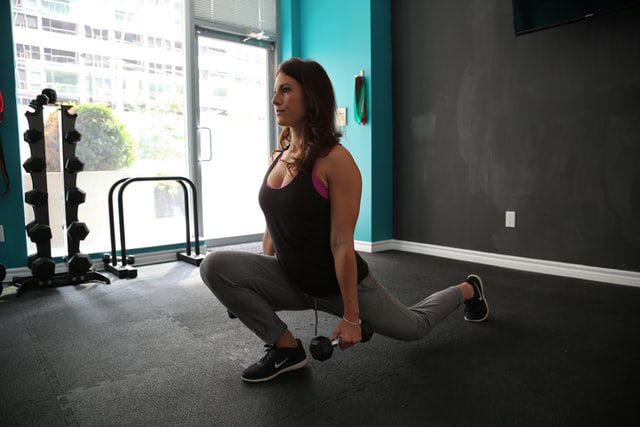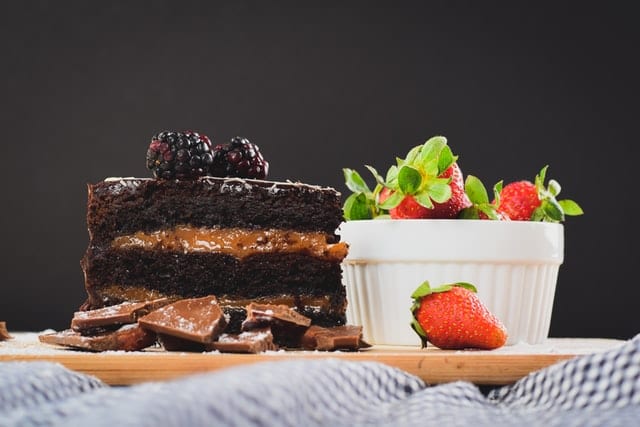Have you ever felt those fluttery “butterflies in your stomach” before a big event, or followed a gut feeling that turned out to be right? Guess what – there’s actually a gut brain connection!

Those sensations are more than just metaphors. Scientists now know that your gut has its own network of neurons, more than 100 million of them working together, as what’s known as the enteric nervous system, often called your “second brain” or “secret brain.”
Table of Contents
This hidden system lines your entire digestive tract, from your esophagus all the way down to your intestines. It constantly sends and receives messages through a pathway called the gut-brain axis, a communication highway connecting your gut and brain through nerves, hormones, and immune signals. What’s even more fascinating is that about 90% of the signals travel from your gut to your brain, not the other way around. That means your gut plays a major role in influencing how you think, feel, and even behave.
Your Gut and Mood Are More Connected Than You Think
Inside your digestive system lives an entire ecosystem of bacteria, fungi, and other microorganisms known collectively as the gut microbiome. There are around 100 trillion bacteria and more than a thousand known strains living inside you right now. A healthy gut is like a well-balanced community, but when those bacteria get out of sync—because of stress, poor diet, lack of sleep, or medications—it can affect far more than your digestion.
Your gut is responsible for producing key neurotransmitters like serotonin and dopamine, the same chemicals that regulate your mood, motivation, and sense of well-being. In fact, about 95% of your serotonin is made in your gut, not your brain. When your microbiome is disrupted, it can lead to more than just stomach discomfort. Many people experience mood swings, anxiety, or even symptoms of depression tied to gut imbalance.
Scientists have also found that gut inflammation or microbiome disruptions may play a role in conditions such as autism spectrum disorders, irritable bowel syndrome (IBS), and chronic fatigue. IBS in particular is now recognized as a gut-brain disorder, because it involves both psychological and physical factors. People with IBS often report symptoms of anxiety or depression, which are thought to result from the ongoing two-way communication between their gut and brain.
How Stress Impacts Your Gut Brain Connection
Have you ever noticed that stressful days can upset your stomach? That’s not your imagination. When you’re under pressure, your brain triggers the release of stress hormones like cortisol, which can alter digestion, reduce beneficial gut bacteria, and weaken your intestinal barrier. This makes your gut lining more permeable—a condition often referred to as “leaky gut.”
READ MORE: How Stress Can Affect Your Gut Health
When this happens, bacteria and toxins that should stay in your intestines can pass into your bloodstream, triggering inflammation and affecting everything from your immune system to your mood. Chronic stress can also slow down digestion, leading to bloating, constipation, or discomfort. The more your gut is irritated, the more messages it sends to your brain, keeping you trapped in a cycle of stress and gut distress.
How Getting Older Affects Your Gut
Lots of factors can affect your digestion, including getting OLDER. Research shows that about 40% of older adults have at least one age-related digestive problem every year! That includes constipation … reflux … sensitivities to certain foods … ulcers … polyps … and more.
Plus, as we age it’s common for our digestive systems to slow down, which can exacerbate other problems.
How to Support a Healthy Gut Brain Connection
The good news is that you can take simple, natural steps to strengthen your gut and improve the way your “secret brain” communicates with your mind. A few consistent habits can make a big difference:
1. Eat more fiber-rich foods.
Whole fruits, vegetables, beans, and whole grains help feed the beneficial bacteria in your gut. These bacteria produce short-chain fatty acids that protect your gut lining and reduce inflammation.
2. Add probiotic and fermented foods.
Incorporate foods like yogurt, kefir, sauerkraut, kimchi, and kombucha into your diet. They introduce helpful bacteria that support a balanced microbiome.
3. Limit sugar and processed foods.
Highly processed foods and added sugars can feed harmful bacteria and promote inflammation, which can negatively affect both your digestion and your mood.
4. Manage stress daily.
Try deep breathing, yoga, or meditation to lower cortisol levels. Even a ten-minute walk can help regulate your nervous system and improve digestion.
5. Get enough sleep.
Aim for seven to eight hours each night. Sleep is when your body repairs itself and your microbiome resets.
6. Move your body regularly.
Exercise boosts circulation and supports gut motility, helping food move smoothly through your digestive tract. It also increases the diversity of beneficial gut bacteria.
7. Stay hydrated.
Water helps with digestion and nutrient absorption and supports the balance of good bacteria.
If you suspect a deeper issue—persistent bloating, discomfort, or major mood shifts—it’s always smart to consult your doctor or a gut health specialist. Sometimes lab testing or a targeted probiotic plan can reveal hidden imbalances that need specific treatment.
Listening to Your Gut Really Means Something
Your body is constantly sending signals, and your gut might be one of its most important messengers. The next time you have a gut feeling or butterflies in your stomach, remember: that’s your second brain talking.
By caring for your gut through good nutrition, stress management, and sleep, you’re not just improving digestion—you’re also supporting your mental clarity, emotional resilience, and long-term well-being.
If you make your gut health a priority, you’ll likely notice that your mind feels calmer, your mood more stable, and your energy levels higher. Science is only beginning to understand how deep this connection goes, but one thing is clear: when your gut is happy, so are you.
Frequently Asked Questions
Q1: What exactly is the gut brain connection?
It’s the communication network between your digestive system and your central nervous system. This two-way link, called the gut-brain axis, connects your enteric nervous system (the “second brain”) with your brain through the vagus nerve, hormones, and immune signals.
Q2: Can gut health really affect mood and mental health?
Yes. Studies show imbalances in gut bacteria are linked to anxiety, depression, and cognitive issues because the gut produces neurotransmitters like serotonin and dopamine that influence emotions.
Q3: How can I tell if my gut brain connection is out of balance?
Common signs include frequent bloating, gas, constipation, food sensitivities, fatigue, low mood, and poor focus. These may suggest inflammation or imbalance in your gut microbiome.
Q4: What are the best foods for a healthy gut brain connection?
Fiber-rich vegetables, fruits, legumes, fermented foods, and omega-3 fats support gut bacteria and reduce inflammation. Limiting sugar, alcohol, and processed foods also helps.
Q5: How long does it take to improve gut health?
Small improvements can appear in a few weeks, but lasting change often takes several months of consistent nutrition, hydration, and stress management.
Related Keywords You Might Be Interested In
- second brain in your gut
- gut health and anxiety
- gut brain axis foods
- microbiome and mood connection
- probiotics for mental health
- how stress affects digestion
- gut brain supplements
- natural ways to balance gut bacteria
- gut health and sleep quality
Trusted References
For readers who want to learn more about the science behind the gut-brain axis, here are reputable sources:
- Harvard Health Publishing – The gut-brain connection
- Johns Hopkins Medicine – The “second brain” in your gut
- Cleveland Clinic – Gut microbiome and mental health
- NIH – How your microbiome affects your health
- APA – The mind-gut connection
- www.health.harvard.edu/staying-healthy/what-to-do-when-medication-makes-you-constipated
- www.webmd.com/digestive-disorders/features/digestive-health-aging


















